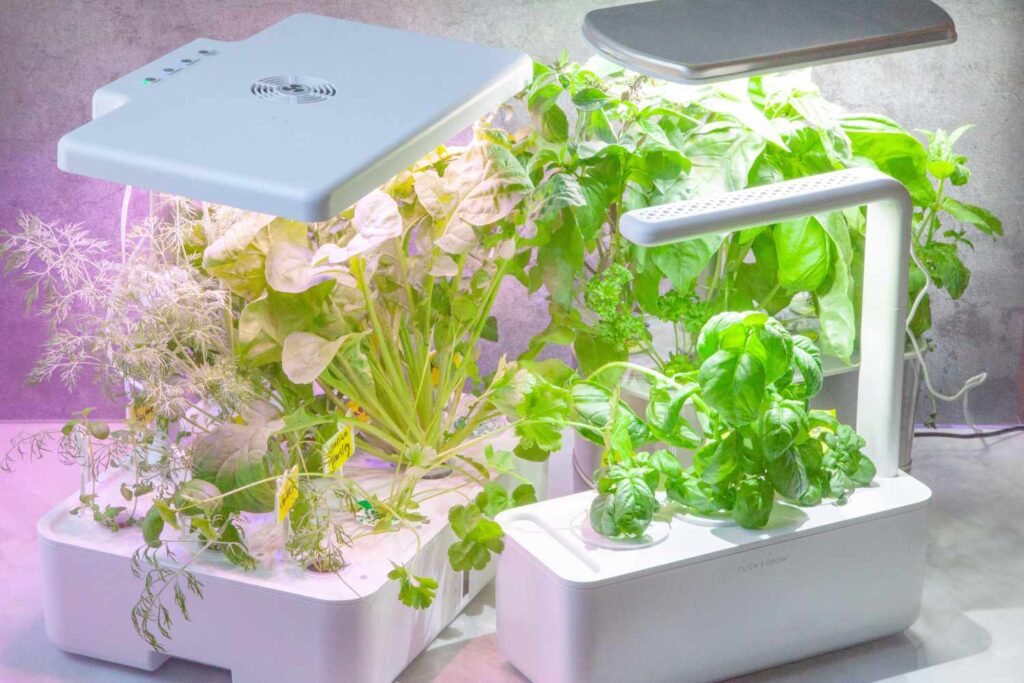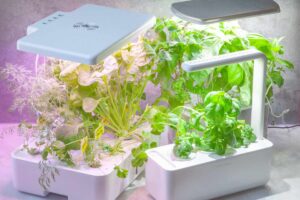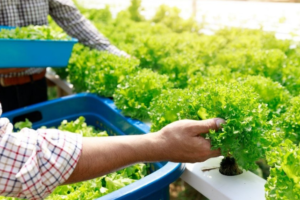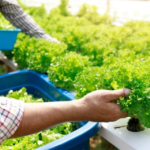Hydroponics is a method of growing plants using a nutrient-rich water solution instead of soil. This gardening technique has gained immense popularity among urban gardeners and people who want to grow fresh herbs indoors. Hydroponic gardens are not only eco-friendly and sustainable, but they also provide a bountiful harvest year-round. In this blog post, we will discuss everything you need to know about hydroponic garden herbs and DIY hydroponic nutrients.

Hydroponic Garden Herbs
Hydroponic herb gardens can be grown easily at home. With the right equipment and careful planning, you can grow your own fresh herbs like mint, parsley, basil, sage, thyme, and chives. Start by choosing the right plants and growing mediums, like peat moss, rockwool cubes, or coconut coir. You will also need to consider the lighting, temperature, and humidity requirements of these plants. Herb gardens require at least six hours of direct sunlight or artificial light per day. You can use LED grow lights that mimic natural sunlight. Make sure to maintain an optimal temperature of 65 to 75 degrees Fahrenheit and humidity between 40 to 60 percent. The best part of growing herbs hydroponically is that they grow faster, bigger, and healthier than those grown in soil. Regular harvesting will encourage new growth and keep the plants healthy.
DIY Hydroponic Nutrients
The success of your hydroponic garden depends on the quality of the nutrients you provide to your plants. Unlike soil-based gardens, hydroponic plants rely entirely on the nutrients present in the water solution. You can buy pre-made hydroponic nutrients from gardening stores or make your own DIY hydroponic nutrients at home. Making your own nutrients is cost-effective, fun, and allows you to customize the nutrient solution as per your plant’s requirements. The basic components of a hydroponic nutrient solution are nitrogen, phosphorus, and potassium. You can add micronutrients like calcium, magnesium, and iron to ensure better plant growth. For DIY hydroponic nutrients, you can use natural ingredients like fish emulsion, compost tea, worm castings, or seaweed extract. Mix these ingredients in the right proportion to make a balanced nutrient solution. Remember to keep testing the pH level of your nutrient solution and adjust it accordingly.
Benefits of Hydroponic Garden Herbs
Hydroponic garden herbs offer numerous benefits over traditional soil-based gardens. First, they save space and water. Hydroponic herb gardens do not require large plots of land or gallons of water. They can be grown vertically and require only one-tenth of the water used in conventional gardening. Second, hydroponic herbs are free from soil-borne pests and diseases. Third, they are pesticide-free and do not harm the environment. Fourth, they offer a year-round harvest and fresh herbs whenever you need them. Finally, hydroponic herbs are packed with nutrients, vitamins, and minerals because they grow in a controlled and enriched environment.
Tips for Maintaining a Hydroponic Garden
Maintaining a hydroponic garden requires much less effort than a soil-based garden. However, you still need to take some steps to ensure that your plants grow healthy and strong. First, check the pH level of your nutrient solution every week and adjust it between 5.5 to 6.5 as per your plants’ requirements. Second, maintain the right temperature and humidity level in your grow room. Third, clean your hydroponic system regularly to prevent algae growth and blockages. Fourth, keep a close eye on your plants for any signs of nutrient deficiency or pest infestation, and take corrective actions promptly. Fifth, harvest your plants regularly to encourage new growth and healthier plants.
Conclusion
This gardening technique saves space, water and allows you to harvest fresh herbs whenever you need them. With the right equipment and careful planning, you can create a bountiful and thriving hydroponic garden of your own. Whether you are a beginner or a seasoned gardener, hydroponic gardening offers endless possibilities and rewards. So, start your hydroponic herb garden today and enjoy fresh herbs all-year-round.



